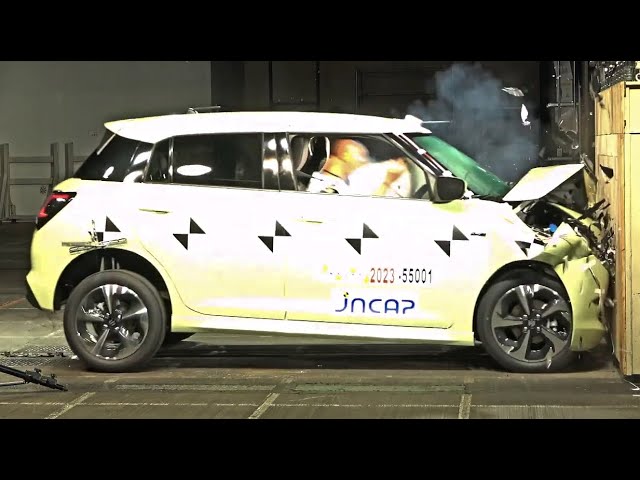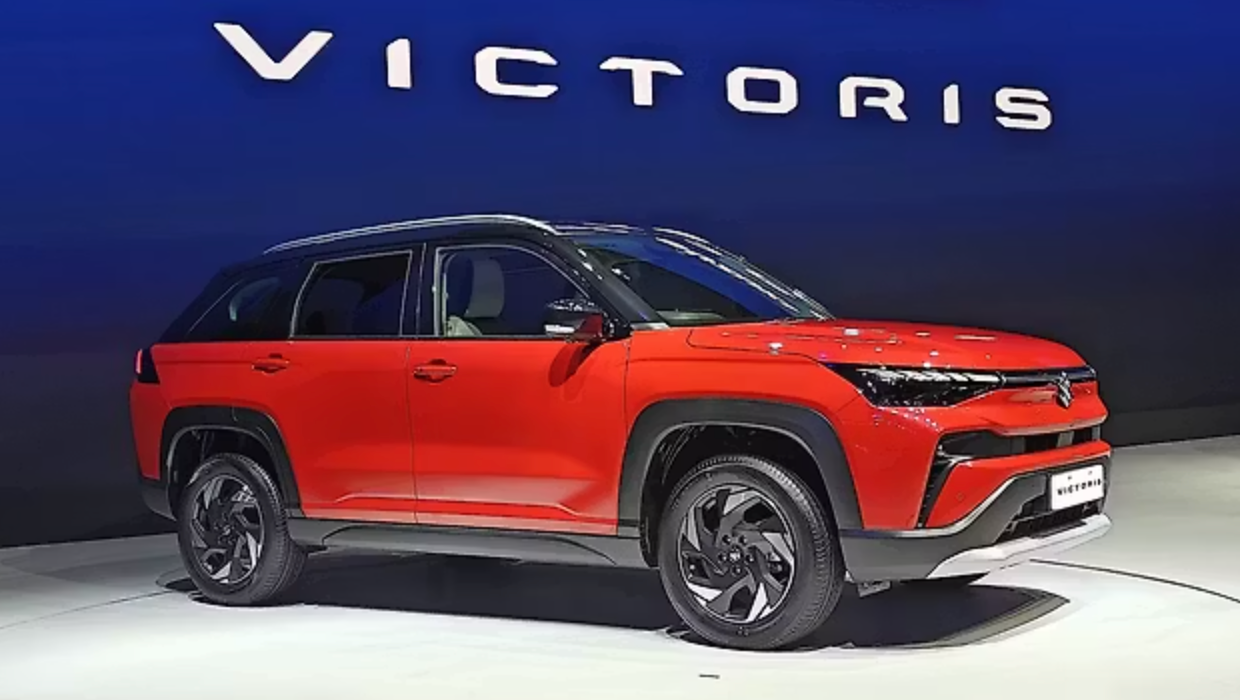The much-anticipated next-generation Maruti Suzuki Swift has undergone safety evaluations in its home market, Japan, by the rigorous Japanese New Car Assessment Program (JNCAP). This rigorous testing provides valuable insights into the car’s core safety structure and the effectiveness of its advanced driver-assistance systems (ADAS). While the Indian-spec Swift might not mirror its Japanese counterpart exactly, the JNCAP results offer valuable clues about the potential safety improvements we can expect in the upcoming Indian model. Let’s delve into the key takeaways from the 2024 Swift’s JNCAP performance.

A Clear Improvement in Safety: A Step Up from Previous Generations
It’s crucial to understand that JNCAP and Global NCAP (the program used for Indian car safety ratings) have distinct testing parameters and evaluation areas. However, considering the 2018 India-made Swift’s disappointing 2-star safety rating from Global NCAP, the 4-star performance in the more stringent JNCAP signifies a significant improvement in the new Swift’s overall safety quotient.
A closer look at the JNCAP results reveals a breakdown of Swift’s performance. The collision safety score of 81% indicates positive results for protecting front passengers in frontal and side-impact tests. Additionally, the JNCAP testing highlights Swift’s effectiveness in mitigating neck injuries during rear-end collisions.
Advanced Driver-Assistance Systems (ADAS) Under Scrutiny
The Japanese-spec Swift comes equipped with a comprehensive suite of ADAS features designed to enhance collision avoidance and lane-departure prevention. JNCAP places a strong emphasis on evaluating these systems, particularly the automatic emergency braking (AEB) system that applies brakes autonomously when detecting vehicles, pedestrians, or cyclists. The testing process assesses the system’s performance in various scenarios, including its ability to detect pedestrians or cyclists crossing a road at night with limited visibility. JNCAP assigns a separate score for “preventive safety performance,” and the 2024 Swift attained a remarkable 99% in this category.
However, it’s important to manage expectations for the India-spec Swift. The inclusion of advanced ADAS features is unlikely due to potential cost increases that could put the car out of reach for its target market in India.
Rear Passenger Safety: A Mixed Bag
Typically, NCAP tests prioritize child occupant protection in rear seats. JNCAP, however, utilizes adult-sized dummies to assess rear-seat safety. In this area, the 2024 Swift’s collision safety performance score was lowest in the offset frontal impact test. On a positive note, the car received a top rating for neck injury protection during rear-end collisions.
Missing Data Points: Questions Remain for the Indian Market
While JNCAP offers a comprehensive evaluation, the report leaves two crucial questions unanswered for Indian buyers:
Body Shell Stability: Does the new-gen Swift’s body shell demonstrate sufficient stability in the event of a frontal impact collision? JNCAP’s report doesn’t provide a definitive answer.
Child Occupant Protection: JNCAP’s use of adult dummies in rear-seat safety testing leaves us without a clear understanding of the car’s effectiveness in protecting child passengers.
FAQs
Q: Did the 2024 Maruti Suzuki Swift achieve a good safety rating in the JNCAP crash test?
A: Yes, the 2024 Swift received a 4-star safety rating in JNCAP, indicating a significant improvement over the previous generation.
Q: Will the India-spec Swift be equipped with ADAS features?
A: It’s unlikely that the India-spec Swift will have ADAS features due to potential cost concerns.




